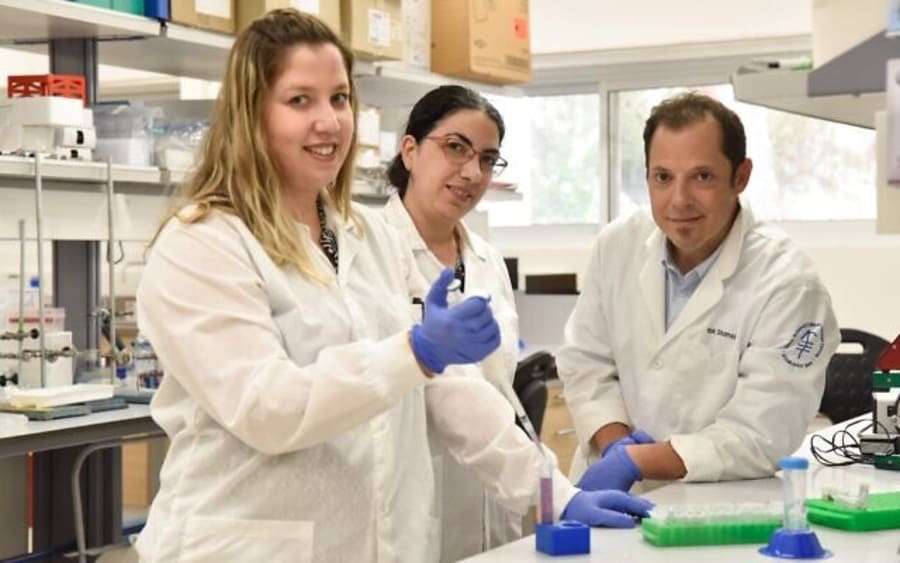Israeli nanotech could alleviate chemotherapy side-effects
Precision-dosing through nanotechnology could mean successful cancer treatments without battering the entire body

Scientists from the Technion, the Israel Institute of Technology, in Haifa, announced that new Israeli nanotechnology could dramatically alleviate side effects of cancer treatments, including chemotherapy.
Traditional cancer treatments require drugs to be administered to the entire human body. By contrast, the new technology could enable precision dosing and, thereby, spare the rest of the body from unpleasant side effects.
In addition, Israel’s emerging nanotechnology innovations could revive and restructure numerous other treatments that are currently seen as unsafe.
The Technion team study focused on inhibitors, drugs designed to block factors that trigger the growth of cancer cells.
Dr. Yosi Shamay, who heads the Technion lab that conducted the research, told The Times of Israel that the nanotech was used successfully to treat mice.
“The new nano-carrier actually enabled us to successfully treat mice with a medicine that normally can’t be used due to its intense side effects,” Shamay said.
The professor stressed that this nanotech opens the door for larger drug doses thanks to its high-precision capabilities.
“This could make existing drugs more effective. As we need to limit doses of some drugs today because of side effects, precision delivery that eliminates concerns of side effects can enable bigger and therefore more effective doses,” Shamay said. “By taking a big step in robotic chemistry, we’ve opened up new opportunities for drugs.”
Shamay explained the dilemma of current cancer treatments, which affect the entire body instead of the intended target area.
“As of now, most drugs have to be administered as regular oral or injected medicines, which means they end up across the whole body. If this happens, 99% of the drug goes to healthy cells and less than 1% goes to the tumor,” Shamay explained.
“This new material enables us to deliver drugs very precisely to solid tumors. Side effects that result from the drug ending up elsewhere in the body can be significantly reduced. And if you can reduce side effects you can also increase doses – as doses are often determined to limit side effects – you can increase the performance of a drug,” Shamay said.
Looking into the future, the Technion professor believes that the nanotech research study could produce a viable patent within five years.
“If everything goes well, in five years we will have patients being administered with our material. This could have a very positive effect on cancer treatment,” he said.
Nanotechnology is a term for science and technology operating at a nanoscale. One nanometer equals one-billionth of a meter.
“Nanoscience is the science of everything that happens on that very small scale,” said Yeshayahu Talmon, the former director of the Technion’s Russell Berrie Nanotechnology Institute. “Now, technology is being developed to take that science and apply it.”
The late Israeli statesman Shimon Peres was a leading proponent for the development and applications of nanotechnology. Peres believed that a tiny technology-savvy country like Israel was particularly well-suited to becoming a global leader in the emerging nanotechnology field.
In 2009, Peres declared that the field of nanotechnology “offers great promise to all humankind. Nothing is new in nano; what is new is that we have discovered it. … All things existed before, but we weren’t able to see it.”
In recent years, the Jewish state has established itself as a leader within this technology sector. Israel has one of the highest concentrations of nanotech start-ups in the world outside of Silicon Valley.

The All Israel News Staff is a team of journalists in Israel.













